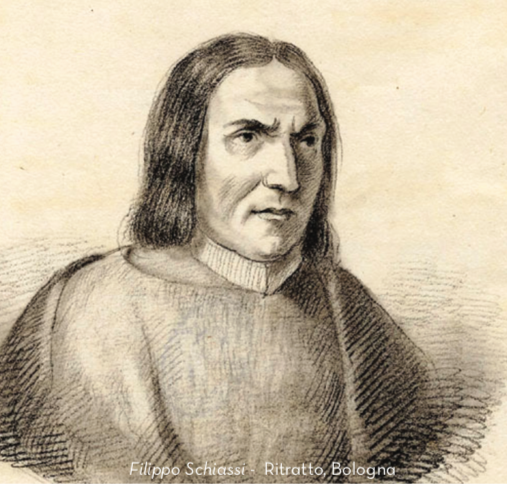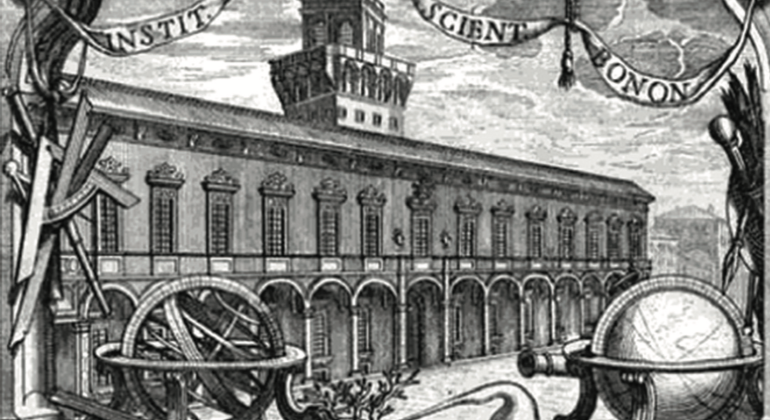Speaking of music is not the exclusive prerogative of musicians, but since time immemorial music has been a discipline relating to mathematics, physics, history and... archaeology! That's why today we are speaking about Filippo Schiassi (1763-1844), an eclectic personality, an ecclesiastic from Bologna, a man of a vast and varied culture, an adept of archaeology and of Greek and Latin letters, university professor of numismatics and of antiquarianism, affiliated to very important local institutions such as the city's Academy of Sciences.
He was also passionate about music. He wrote as a "dilettante" an interesting study "A Tuning System for the Harpsichord and the Organ," a long essay given in Bologna's Academy of Sciences in 1832. Here he takes position on a challenging issue in Pythagoras's time but still very current: the tuning of keyboard instruments.

Since antiquity the problem of tuning had been posed, and Schiassi, who knew well that world, focused on the issue. Pythagoras had defined the basic relations between the notes of the scale with simple mathematical ratios, but the musical practice had had to adjust the "natural" intonation over the centuries because of ever more complex musical instruments. In Schiassi's time, such was the variety of scales and tunings to be forced to a unique road and to create a universal tuning method: we call it 'equal temperament.'

A method, as he writes: "that in addition to being easy and excluding any arbitrary, and not to give any undesirable alteration, has the merit of serving the variety that our most famous composers are seeking to adapt music to the different nature of the subjects or sad, or cheerful, or terrible, or majestic, which is not achieved by the methods proposed by our contemporaries and by many others before them." In short, even an unsuspecting archaeologist, who is familiar with both ancient things and science, is added to a debate that in those years will lead to a definitive choice. So effective as to be, still today, our musical choice, considered by all to be the most universal and "natural."

.png)



.png)